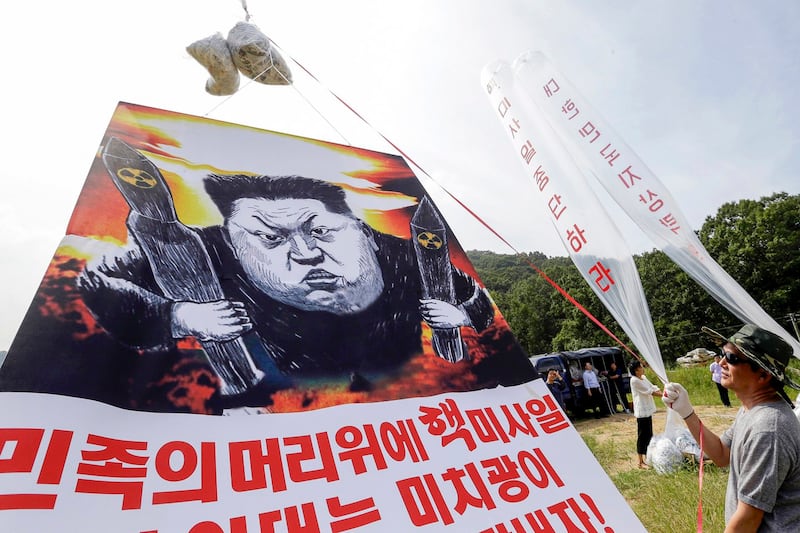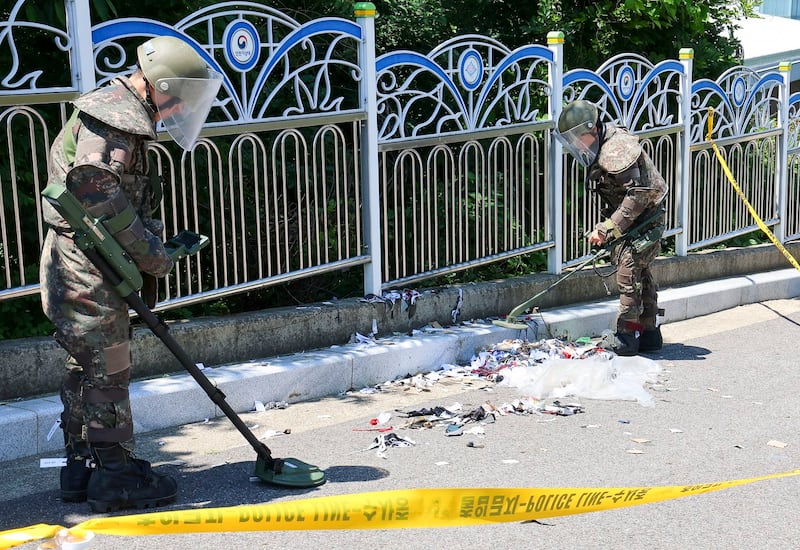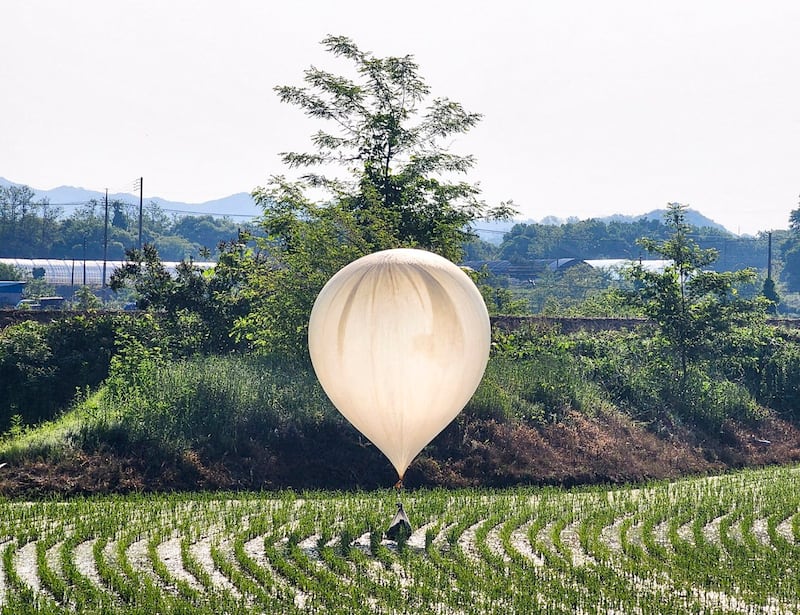South Korean soldiers fired warning shots after a dozen soldiers from North Korea crossed one of the world’s most fortified borders earlier this week, the South’s military said Tuesday.
The incident occurred at 12:30 p.m. on Sunday, as the soldiers crossed the military demarcation line, or MDL, that bisects the demilitarized zone, or DMZ, dividing the two Koreas, the South Korean Joint Chiefs of Staff said, adding that it was likely a mistake.
“The area near the DMZ is heavily wooded, and the MDL signs are not clearly visible,” Lee Sung Joon, a spokesperson for the joint chiefs, told reporters at a news briefing. “Therefore, (they) were moving through the bush in a situation where there were no clear paths, and the South Korean military had been observing them even before they got close to the MDL.”
After the warning shots were fired, the North Korean soldiers promptly crossed back over into North Korean territory, which Lee said resulted in the joint chiefs’ assessment that there was no intent to cross the MDL.

A joint chiefs of staff official told RFA Korean that the North Korean soldiers were a mere 50 meters inside South Korean territory and were there for only a short time. He said they were working with tools like pickaxes and it is assumed that they lost their way when they crossed.
‘Primary enemy’
The incident comes at a time when tensions are high on the Korean peninsula, with the North having this year defined the South as a primary enemy, and no longer referring to North and South Koreans as being "one race" – an ethno-nationalist, pro-unification phrase that has been used in both Koreas over the years.
Since then, the North has tested missiles several times, and recently floated trash-filled balloons over the border, a nod to South Korea-based civil groups' decades-old practice of launching their own balloons filled with anti-regime leaflets.

The incident occurred on the same day that the South Korean military made loudspeaker broadcasts audible in North Korea in response to the trash balloons.
The joint chiefs said they would continue to monitor North Korean military movements and take “necessary measures in accordance with operational procedures."
Common occurrence
Experts told RFA that border incursions like Sunday’s happen quite frequently and the South’s assessment of the situation was proper and justified.
“Incidents like this have been pretty common along the militarized zone for the entirety of the armistice,” said Sydney Seiler, the former national intelligence officer for North Korea at the National Intelligence Council, an U.S. government organization that bridges policymakers with the intelligence community.“It would be unnatural or it would be strange to think of this as anything more complex than what's been described.”

He said one could imagine that North Korea might have wanted to test how South Korea would respond, but suggested that idea was “far-fetched” considering the circumstances.
“Sometimes the simplest answer is the right answer,” he said. “I don't think it was a significant event.”
Gary Samore, the former White House coordinator for arms control and weapons of mass destruction, and Patrick Cronin, the Hudson Institute’s Asia-Pacific security chair, both told RFA that they accepted South Korea’s assessment of the incident.
Both also acknowledged that outside of Sunday’s incident, North Korea is currently increasing provocations with the South during a particularly tense period in inter-Korean relations.
“Dictators like to play this game of ‘chicken’ because only they know whether they are serious about the use of lethal force,” said Cronin. “Meanwhile, democratically elected leaders are subject to harsh reactions from public opinion, which can be easily manipulated into thinking that a strong defense might trigger open conflict.”
Translated by Leejin J. Chung. Edited by Eugene Whong and Malcolm Foster.
